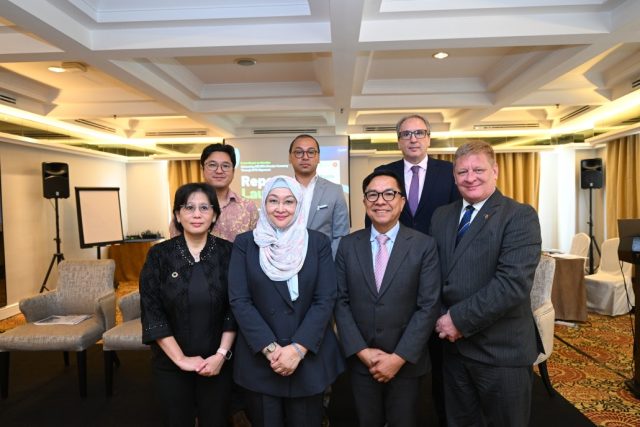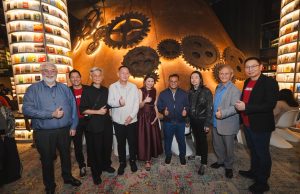Kuala Lumpur – 28 May 2025: The EU-ASEAN Business Council (EU-ABC) has launched its latest report, “From Waste to Wealth: Advancing ASEAN’s Circular Economy Through EPR Alignment.” The report provides a detailed analysis of the challenges and opportunities in advancing the circular economy in ASEAN through greater alignment of Extended Producer Responsibility (EPR) policies.
ASEAN generates millions of tonnes of plastic waste annually, with six member states ranked among the top ten global contributors to marine plastic pollution. With low collection and recycling rates in the region, the report underscores the need to accelerate the shift to a circular economy, positioning EPR as a key tool to drive accountability and reduce waste pollution across the region.
The report highlights the current fragmentation of EPR policies across ASEAN member states, noting that inconsistent regulations and weak enforcement are hindering the region’s transition to a sustainable, circular economy. It outlines the challenges businesses face due to divergent EPR frameworks, particularly the lack of clear producer definitions, regulatory misalignment, and underdeveloped waste management infrastructure.
Alongside these challenges, the report presents key recommendations to support ASEAN’s circular economy ambitions. These include strengthening national-level EPR policies, aligning regulatory frameworks across the region, and building a regional market for recycled materials. The report emphasizes the importance of aligning core EPR elements – such as definitions, reporting requirements, and fee structures – to reduce compliance complexity and promote regional integration.
Commenting on the launch, Chris Humphrey, Executive Director of the EU-ASEAN Business Council said “The launch marks a crucial step toward ensuring that ASEAN’s circular economy is not just a lofty goal, but a reality. The insights from this report highlight the importance of regulatory alignment and infrastructure investment in turning the EPR framework into a real driver of sustainability and economic growth across the region. The EU-ASEAN Business Council is committed to facilitating collaboration between governments and the private sector to make this transition smoother, and we look forward to seeing ASEAN lead the way in circular economy innovation.”
The report also advocates for integrating the informal sector into formal waste management systems, acknowledging the critical role these actors play in waste collection and recycling in many ASEAN countries. Additionally, it calls for the development of financial incentives and trade facilitation mechanisms to attract regional investment in recycling infrastructure.
Karina Lucia, Vice President of Public Affairs, Communications, and Sustainability, Coca-Cola Europacific Partners, stated “As a business leader, I am deeply committed to fostering inclusive, locally relevant solutions that engage all stakeholders and drive the collection and domestic recycling of beverage packaging. I believe that mandatory Extended Producer Responsibility (EPR) is a crucial legislative tool for ensuring a level playing field. It can be tailored to the local context of emerging economies in the ASEAN region to facilitate essential multi-stakeholder action on waste management – what we term ‘Extended Stakeholder Responsibility.’
At CCEP, we are proactively applying EPR principles by establishing producer-led collection initiatives and community-based waste management models. These efforts are not only achieving measurable progress in reducing plastic pollution but also generating positive social impacts for informal waste workers in Indonesia.”
Christian Stammkoetter, President, Danone Asia, Middle East and Africa, says “At Danone, we see Extended Producer Responsibility not just as a policy tool, but as a catalyst for systemic change. We believe that well-designed and efficient EPR systems – like those advocated in the EU-ASEAN Business Council’s EPR report – are essential to scaling collection, boosting recycling rates, and reducing reliance on virgin materials across ASEAN, as well as preventing plastic leakage into the environment. As a signatory of the Ellen MacArthur Foundation’s Global Commitment on Plastic, Danone has advocated for several years for an ambitious and binding UN Treaty on Plastics. We are proud today to stand alongside partners in shaping a circular future to accelerate the region’s transition to a truly circular and low-carbon economy.”
To read more about the report, download the copy HERE.









